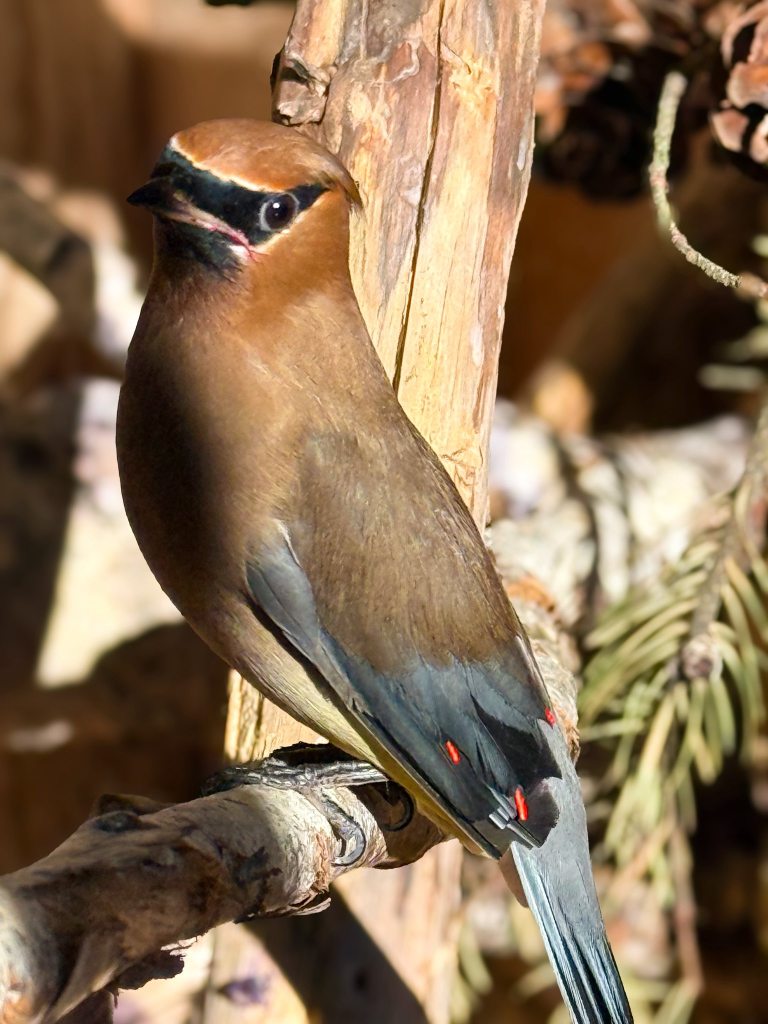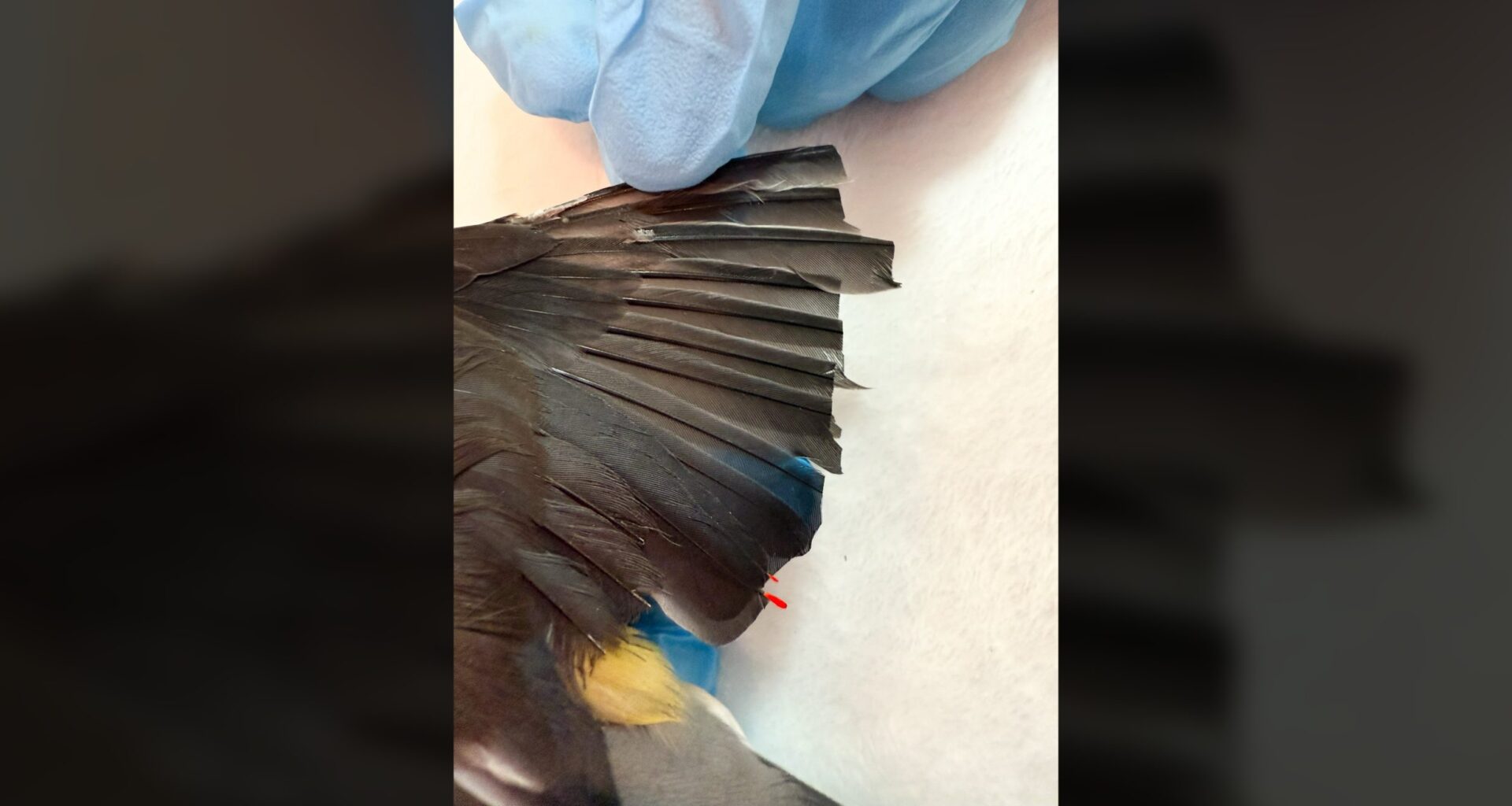A cedar waxwing is recovering at the North Island Wildlife Recovery Centre (NIWRA) after being found on a Qualicum Beach patio with its wings intentionally clipped, an act staff say left the bird defenceless and unable to survive in the wild.
Joanna Smith, NIWRA’s lead for animal care, said the bird was brought in Aug. 9 by a resident who noticed it couldn’t fly.
“Upon examining it, we definitely noticed, because cedar wax wings are so famous for their wax tips on their wings, it just didn’t look right,” Smith told CHEK News Tuesday. “And you can clearly see that it wasn’t a break or an injury that caused this, it was clearly cut by someone.”
The precision of the cuts, she explained, is a telltale sign.
“Normally, if a feather has broken, you’ll kind of see that forked from the feather. But if it’s cut like that, like it’s so straight and so blunt, that’s not a natural form for a feather.”
Wing clipping can cause pain to birds, especially if “blood feathers” are severed as they have nerve endings and a blood supply associated with feather growth.
 A cedar waxwing that had its wings clipped is shown in the care of North Island Wildlife Recovery Centre. Aug 9, 2025. (NIWRA)
A cedar waxwing that had its wings clipped is shown in the care of North Island Wildlife Recovery Centre. Aug 9, 2025. (NIWRA)
The physical damage is only part of the harm, as Smith says the social and survival impacts to birds with their wings clipped are severe.
“Cedar wax wings in general are such a social bird, like they are found in huge flocks. So not being able to fly, they can’t migrate with their flock, they can’t be with their flock, so that’s a huge isolation to them, and that creates a huge sense of vulnerability,” she said.
“They can’t fly away from predators. They can’t fly to collect the berries and the insects that they need to survive that are high up in bushes and trees. It’s just a huge stress.”
While NIWRA staff don’t know why the bird’s wings were clipped, Smith suspects it may have been an attempt to keep it as a pet. The Migratory Birds Convention Act prohibits harming or interfering with wild migratory birds, and violators can face significant penalties.
The cedar waxwing will now undergo a lengthy recovery process that includes physical therapy and close monitoring.
“We hope that it will molt and regrow naturally, and hope that there’s not permanent damage made to it,” said Smith, with NIWRA noting in a Facebook post that the bird’s chances are improved because it is being housed with two other waxwings in care.
Smith says in her experience in wildlife care, she’s never seen an adult songbird with its wings intentionally clipped before, and she hopes the case serves as a reminder.
“Yes, they’re beautiful birds and they’re quite sweet-natured, but being held, even just holding a songbird, can kill them just from the sheer stress,” she said. “So the fact that this bird has gone through such a stressful ordeal already and survived is, it’s just so sad for that bird.”
The incident will be reported to conservation authorities, though staff say finding the person responsible will be difficult.

